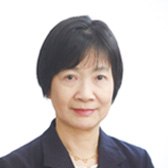From the Dean
Message from the Dean

Professor KUME, Shoen, Dean
The School of Bioscience and Biotechnology was established at Tokyo Institute of Technology in 1990. In 2016, the School of Bioscience and Biotechnology and the Graduate School of Bioscience and Biotechnology merged to form a new School of Life Science and Technology. In 2024, Institute of Science Tokyo was established through the integration of Tokyo Institute of Technology and Tokyo Medical and Dental University. At this new stage, the university will continue to promote the fusion of its traditions with cutting-edge science, technology, and medical research, aiming for the further advancement of life science and technology.
In addition to over 100 affiliated faculty members, the School of Life Science and Technology also includes faculty from the Laboratory for Chemistry and Life Science at the Institute of Integrated Research (IIR), the Cell Biology Center, and the Earth-Life Science Institute (ELSI) at the Institute of Future Science, bringing the total faculty count to more than 120 across approximately 70 fields of study. In terms of research, we have established Open Research Facilities for Life Science and Technology to provide access to cutting-edge equipment, through which we have strengthened cooperation with other universities, research institutions, and companies at home and abroad. In recent years, the challenges we face have become increasingly complex, including issues such as rising threats of infectious diseases, declining birth rates, aging populations, and advances in regenerative medicine and biotechnology. We are actively developing new fields and interdisciplinary research to address these issues.
In terms of education, the undergraduate programs provide students with a thorough grounding in the fundamentals of life sciences and technology while providing ample opportunities to engage with the latest research. In addition, at the graduate level, we offer a variety of learning opportunities, including Graduate Majors in Life Science and Technology, Science and Technology for Health Care and Medicine, and Earth-Life Science, creating an environment that enables multidisciplinary education and research. We also offer entrepreneurship training to support the development of new ventures. Furthermore, our School actively promotes international exchanges with the goal of contributing to the development of internationally-minded researchers.
We envision our institute as a place where future leaders can learn, think freely, and engage in research with a spirit of curiosity. We aim to cultivate young researchers who can contribute to human health, the preservation of the global environment, and the betterment of society through advanced understanding and application of life sciences and technology. Together, we will take a significant step forward as the Institute of Science Tokyo to achieve world-class research and education.
I sincerely look forward to working with all of you to shape the future of life sciences and technology.

